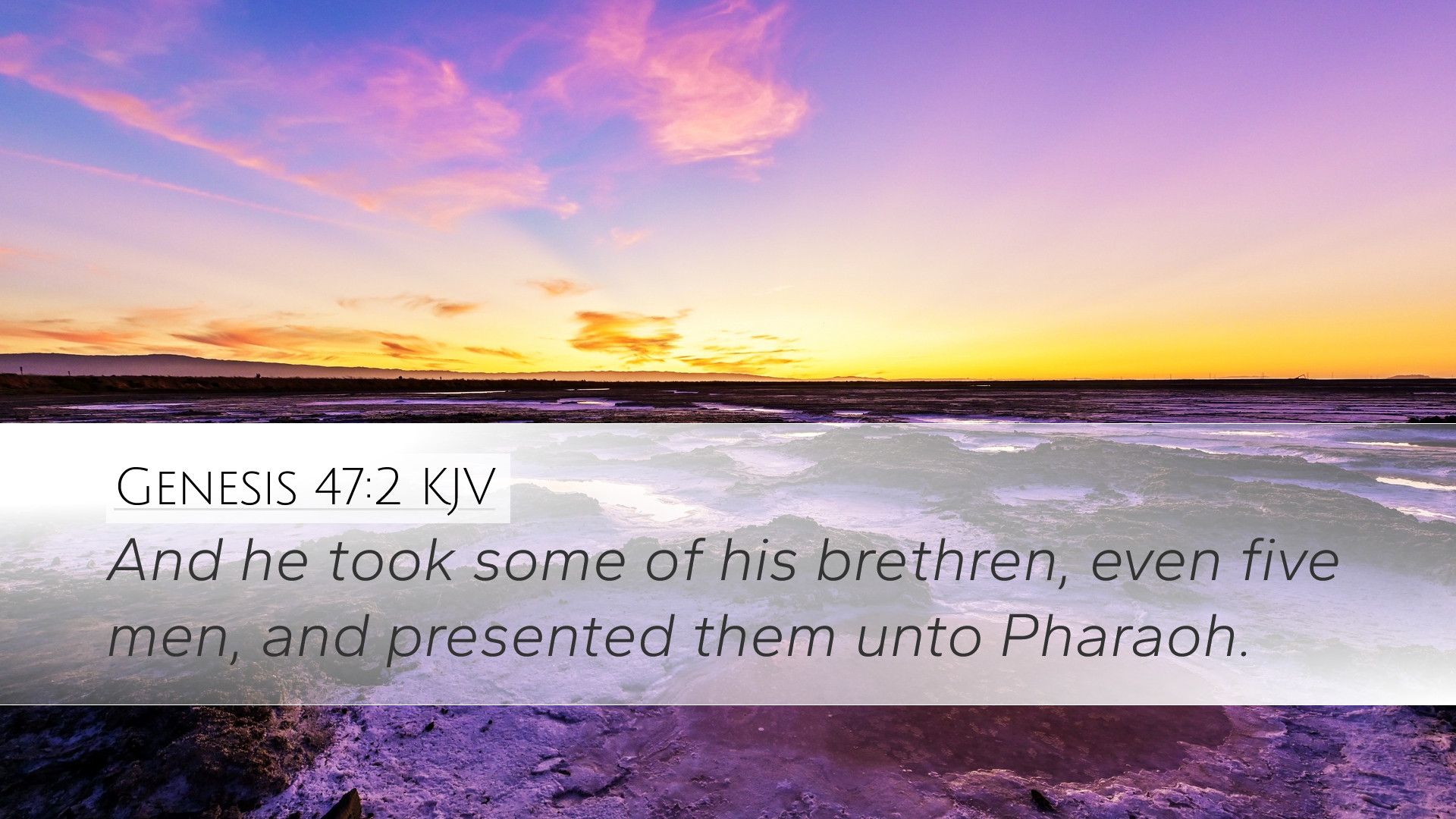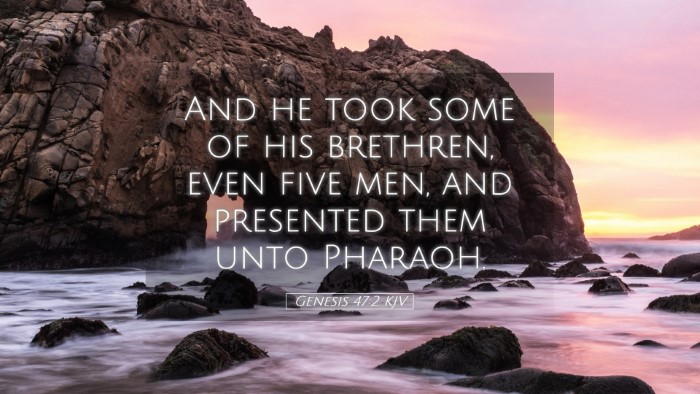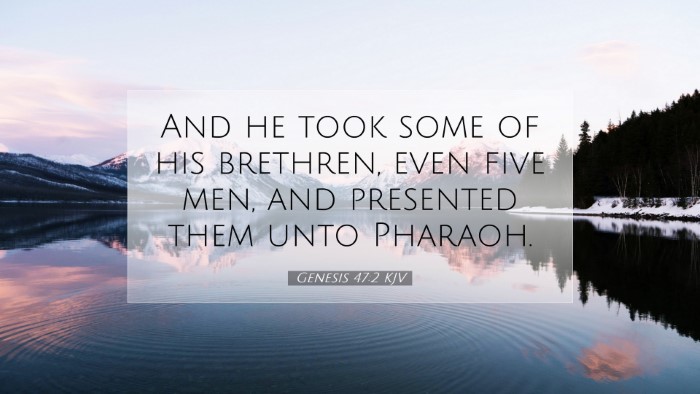Commentary on Genesis 47:2
Genesis 47:2 recounts a pivotal moment in Joseph's life where he presents his father Jacob and his brethren before Pharaoh. The verse states:
“And he took some of his brethren, even five men, and presented them unto Pharaoh.” (Genesis 47:2, KJV)
Contextual Overview
This moment occurs during a time of great famine, and Joseph’s elevation in Egypt allows him to protect his family from starvation. Jacob and his family, having traveled from Canaan, are now in Egypt, entering a new chapter filled with both difficulty and opportunity.
Exegesis and Theological Insights
1. Joseph's Role as a Mediator
Matthew Henry eloquently notes that Joseph acts as a mediator between his family and Pharaoh, representing both the needs of his people and the interests of Egypt. This role is significant in biblical typology, where Joseph prefigures Christ, the ultimate mediator between God and humanity.
2. The Significance of the Number Five
Albert Barnes posits that Joseph chose five brothers to present to Pharaoh deliberately. The choice of five may embody a representation of the family’s strength or the completeness of his brethren. Five is often considered a number symbolizing grace in biblical numerology. This highlights God’s grace upon Joseph and, by extension, his family in a foreign land.
3. Importance of Presentation Before Authority
Clarke comments on the weight of being presented before a ruler like Pharaoh. The act signifies not only a plea for sustenance but also an acknowledgment of the authority and power Pharaoh held. Joseph’s wisdom in this presentation reflects a recognition of God’s providence in elevating him to a position where he could influence the king.
The Brothers: Character and Purpose
The choice of which brothers to present reflects upon them as a collective entity. The five men represent the patriarchal beginnings of Israel's future and destiny in Egypt.
1. Representation of the Tribes
Joseph's selection can be viewed as a foreshadowing of the tribes of Israel that would emerge from them. Each brother represents more than just their personal identity; they symbolize the eventual nation that God would raise from this family.
2. A Test of Character
The presentation serves as a test of character for both the brothers and Pharaoh. It provides an opportunity for the brothers to communicate their needs, while showcasing their modesty and respect for authority. The underlying theme here relates to how believers should approach earthly authorities with a spirit of humility and dependence on God's providence.
Cultural and Historical Dimensions
Understanding the cultural backdrop of Egypt during this period adds layers to the narrative. In Ancient Egypt, the king was seen as almost divine, and presenting oneself before Pharaoh required careful etiquette and preparation.
1. The Role of Foreigners
In contrast to the Egyptians, foreigners were often viewed with suspicion. The presentation thus serves as a crucial moment of receiving acceptance. Those in positions of authority are often faced with decisions that shape the future, and this exchange introduces Joseph’s family as a group worthy of Pharaoh's consideration.
2. Implications for Future Generations
This presentation impacts not only the immediate situation but also the future of the Israelites in Egypt. The acceptance of Joseph's family foreshadows a time of growth, but it also sets in motion the eventual oppression they would face, a topic that will be further explored in subsequent chapters of Exodus.
Theological Reflections
This pivotal moment in Genesis captures key theological themes relevant to both scholars and practitioners:
- Divine Providence: Joseph's situation exemplifies how God's plans unfold, often through unexpected means.
- Identity and Belonging: The Israelites, though foreigners, are integrated into Egypt, highlighting the complexities of identity in a world dominated by power structures.
- God’s Grace in Exile: The family's acceptance in Egypt signifies God’s grace even in trials.
Conclusion
Genesis 47:2 is not merely an account of a physical gathering but is laden with spiritual significance. As pastors, students, theologians, and scholars engage with this text, they can draw rich insights into the nature of God’s provision, the role of authority, the identity of God’s people, and the overarching narrative of redemption woven throughout Scripture. This verse serves as a profound reminder of God's hand at work in the providence of our journeys.


